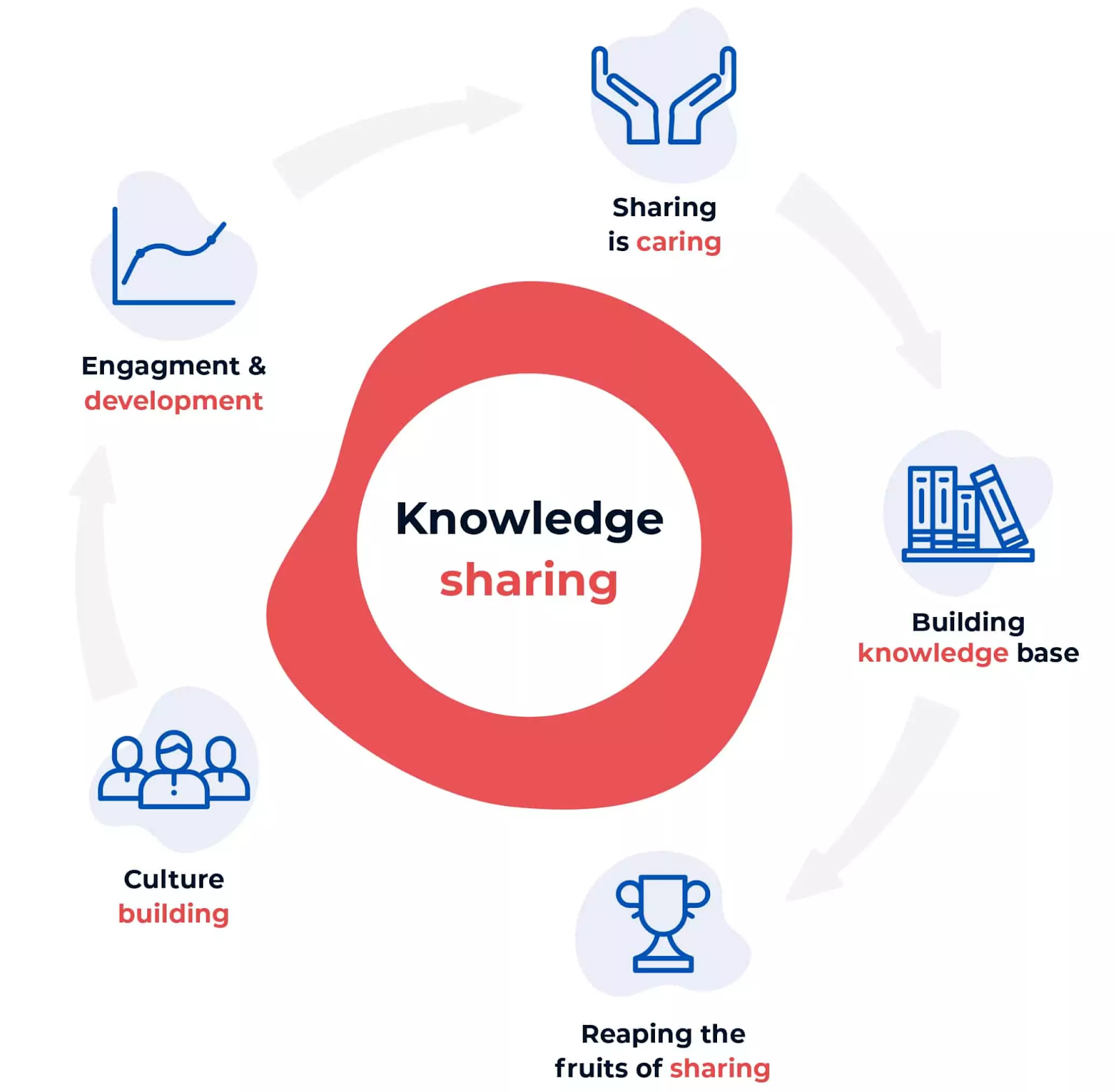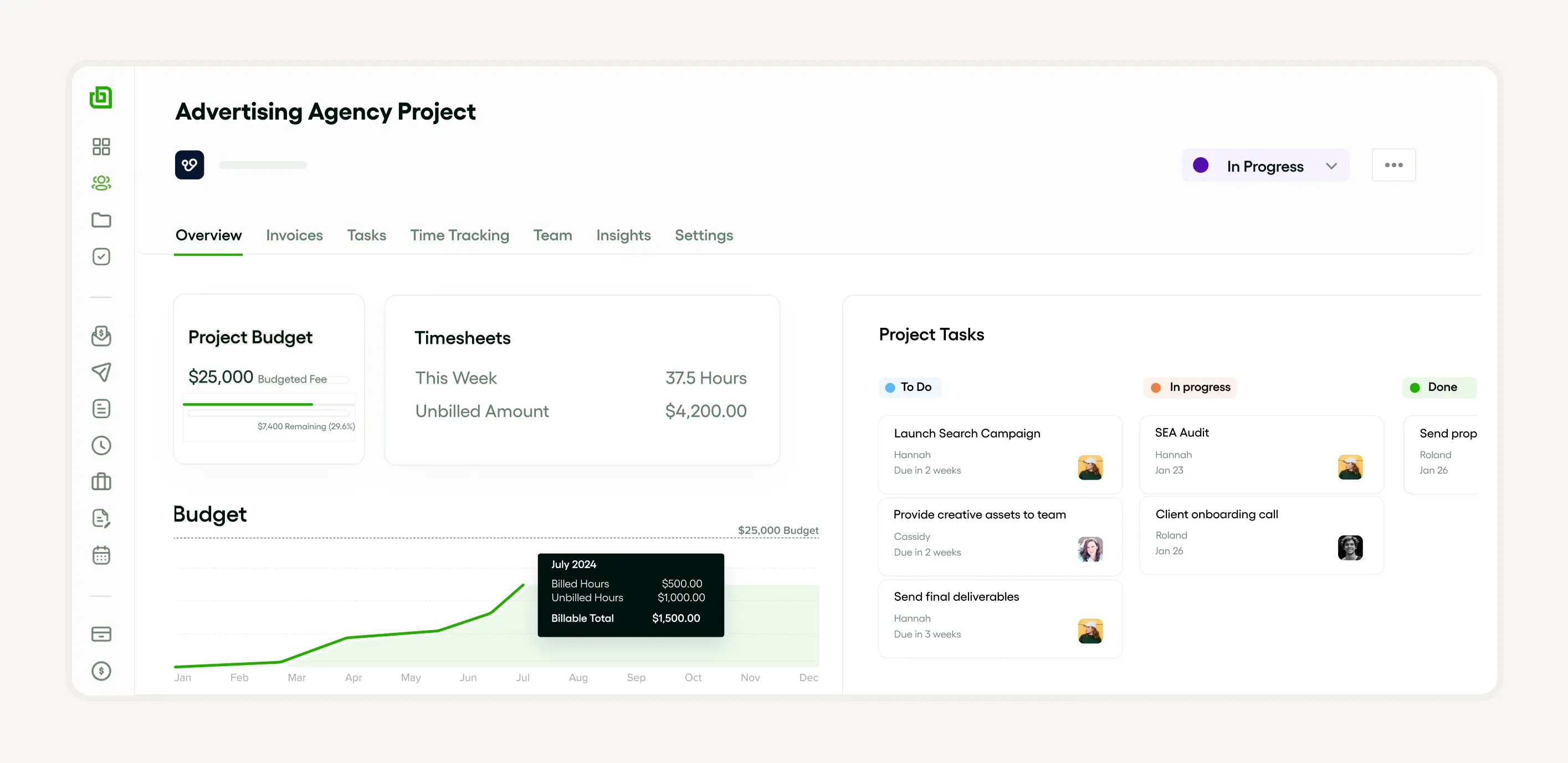Knowledge sharing stands as a cornerstone in enhancing an organization's growth and the development of its employees. By fostering an effective knowledge management system that embraces both tacit and explicit knowledge, organizations can catalyze information exchange, skill-sharing, and social learning. This nurturing of a vibrant learning culture not only strengthens employee engagement but also promotes the continual evolution of organizational knowledge through effective tools and strategies.
Introduction to knowledge sharing
Knowledge sharing is the dynamic process through which knowledge and skills flow among individuals, groups, or entire organizations. This practice is instrumental in building a collective knowledge base, facilitating seamless information exchange, and enhancing knowledge acquisition. It plays a critical role in cultivating a learning culture that propels employee development and harnesses both tacit and explicit knowledge, thus driving engagement and continuous organizational growth.

Definition of knowledge sharing
At its core, knowledge sharing involves the circulation of knowledge, whether explicit or tacit, among people within an organization.
As a vital component of knowledge management, it underpins the creation of a learning culture that is crucial for the workplace. Through processes like knowledge acquisition, creation, and transfer, and supported by various tools, knowledge sharing fuels social learning, bolsters employee engagement, and enhances organizational knowledge.
The importance of knowledge sharing in today's business environment
In the complex landscape of modern business, knowledge sharing is more crucial than ever. It enables organizations to foster a learning culture that is essential for employee development and engagement. Sharing tacit and explicit knowledge not only enriches this culture but also drives the innovation and agility needed to thrive.
Effective use of knowledge sharing tools can streamline these processes, leading to better decision-making, groundbreaking ideas, and robust business growth.
Using Bonsai tool for effective knowledge sharing
Using the Bonsai tool for effective knowledge sharing can really transform your team’s dynamics. Picture a centralized knowledge base where all essential information is stored and readily available to everyone. Say goodbye to sifting through countless emails or struggling to recall where that specific document is located.
With Bonsai, everything is neatly organized in one platform, making it incredibly easy to access what you need.
One of the standout features of Bonsai is its ability to promote smooth information sharing. Whether you’re exchanging insights, updates, or best practices, Bonsai simplifies the process. You can create discussion forums, and collaborate in real-time. This type of open communication breaks barriers and encourages a more cooperative work atmosphere.

When it comes to boosting knowledge acquisition, Bonsai has you covered. The platform caters to various learning preferences by integrating multimedia elements such as documents or infographics. This ensures that no matter how your team likes to learn, there’s something available for everyone.
Additionally, Bonsai’s tracking and analytics features allow you to monitor progress and identify areas where further training may be beneficial.

By incorporating Bonsai into your knowledge management approach, you’re not only enhancing individual performance; you’re positioning your entire organization for success. Employees who have easy access to a source of information are better prepared to make informed decisions, innovate, and adapt to market changes.
In short, using the Bonsai tool for effective knowledge sharing enables you to create a strong collective knowledge base, encourages smooth information exchange, and improves knowledge acquisition. This results in a more informed, engaged, and agile workforce, ultimately driving productivity and business growth.
So, why not give it a shot and experience the positive impact it can have on your team?
The role of knowledge sharing in organizations
Knowledge sharing is pivotal in nurturing an enriched learning culture and promoting a reservoir of collective knowledge within an organization. Through strategic use of social learning platforms and information exchange systems, it facilitates the widespread dissemination of knowledge. This interaction is vital for continuous knowledge transfer, acquisition, and ultimately, the comprehensive development and engagement of employees, fostering an ongoing cycle of growth and innovation.
Enhancing decision-making processes
Robust decision-making in organizations is heavily reliant on efficient knowledge management and sharing. These processes enrich the organizational culture with knowledge acquisition and creation, enhancing the scope for employee development and engagement. Knowledge sharing tools play a significant role here, fostering an environment ripe for information exchange and collaboration, which in turn bolsters collective organizational knowledge and decision-making capabilities.
Boosting innovation and creativity
To cultivate a culture brimming with innovation and creativity, organizations must prioritize effective knowledge management. This involves fostering an environment where knowledge transfer and information exchange are encouraged through various tools. Such initiatives not only enhance social learning but also encourage employees to share, develop, and apply their knowledge creatively. The result is a workforce empowered to drive innovation and contribute to the organization's creative ventures.
Improving employee skills and competencies
In today’s competitive landscape, fostering a learning culture is crucial for enhancing employee skills and competencies. Organizations that encourage an environment conducive to knowledge sharing help team members exchange valuable insights and expertise, which in turn facilitates personal and professional growth. By leveraging diverse knowledge sharing tools, organizations can promote a more engaged and competent workforce, ultimately elevating overall performance and success.
Challenges in implementing knowledge sharing in organizations
Implementing knowledge sharing in organizations can be a tough nut to crack due to several obstacles. One key challenge is transitioning from tacit knowledge to explicit knowledge. Employees often struggle to articulate their skills or knowledge in a way that’s easily understood and usable by others.
Promoting a learning culture? That’s another hurdle. Employees may resist change due to a lack of understanding of the benefits of knowledge sharing. Plus, getting employees engaged is crucial for successful information exchange, but motivating them to actively participate in knowledge transfer can be a real uphill battle.
Moreover, organizations might lack the right knowledge sharing tools that make knowledge management a breeze. True collection and sharing of organizational knowledge require robust systems and the right strategies to drive employee involvement in such activities.
Overcoming cultural barriers
Organizations can overcome cultural barriers by fostering a learning culture and promoting employee development. This involves creating an environment that encourages information exchange and knowledge transfer, where tacit knowledge can be converted into explicit knowledge for everyone’s benefit.
This can be achieved through the use of knowledge sharing tools that facilitate social learning and foster collective knowledge. Employee engagement in knowledge acquisition and creation further strengthens the organization’s knowledge management system, enhancing its capacity for skills sharing.
Addressing technological challenges
Addressing technological challenges requires fostering a learning culture within the organization. This includes knowledge transfer, explicit knowledge acquisition, and facilitating skills sharing among team members. Emphasizing a strong learning culture supports employee development and engagement.
Information exchange and social learning aid in the creation and management of collective knowledge. Tools that facilitate knowledge sharing play a fundamental role in knowledge management and in addressing technological challenges effectively.
An organization’s ability to capture, distribute, and effectively use knowledge directly impacts its capacity to tackle technological challenges. This can be developed by nurturing tacit knowledge and emphasizing employee engagement.
Dealing with trust issues
Dealing with trust issues in a learning culture involves facilitating good information exchange and promoting knowledge transfer among the team. This can significantly elevate employee development and enhance the collective knowledge of the organization.
Reliable knowledge sharing tools that foster explicit and tacit knowledge acquisition among employees can bolster trust levels. Emphasizing social learning and skills sharing in a supportive environment can further increase employee engagement. Properly executed knowledge management assures team members that their contributions are valued, leading to healthy collaboration and fewer trust issues.
Strategies for effective knowledge sharing
Implementing a robust knowledge management system is vital for effective knowledge sharing. It involves facilitating tacit and explicit knowledge transfer, optimizing knowledge creation, and ensuring its proper acquisition. This can be achieved through various knowledge sharing tools like workshops, seminars, and social learning platforms.
Another key strategy is fostering a strong learning culture in the organization. It motivates employees towards continual skills sharing and information exchange, contributing to collective knowledge enhancement and employee development. A culture that encourages employee engagement in these activities likewise improves overall organizational knowledge.
Creating a knowledge sharing culture
Creating a knowledge sharing culture encompasses numerous key components. Explicit and tacit knowledge transfer are paramount for in-depth understanding and knowledge acquisition. This participative exchange fosters a learning culture, promoting employee development and engagement.
Moreover, social learning enhances this process, promoting collective knowledge and skills sharing within the organization. Employing effective knowledge sharing tools is also instrumental in managing organizational knowledge and nurturing an environment conducive to information exchange and knowledge creation.
Implementing the right technology
Implementing the right technology provides a platform for tacit and explicit knowledge sharing, supporting effective knowledge transfer, and promoting a learning culture.
Knowledge management tools enable employees to leverage collective knowledge, enhancing information exchange and promoting employee development. These platforms foster social learning, improving employee engagement through interactive sessions and feedback.
Organizational knowledge acquisition and creation are facilitated by systems that allow skills sharing and capture useful insights from employee interactions. By embedding these into everyday activities, companies can improve both efficacy and efficiency.
Embracing the right technology is critical in managing knowledge, moving from traditional methods to smart, interactive systems that better cater to the modern workforce and boost overall productivity.
Encouraging and rewarding knowledge sharing
To build a thriving learning culture in an organization, knowledge sharing needs to be both encouraged and rewarded. This process fosters knowledge transfer and facilitates information exchange, ultimately aiding in employee development.
Tools that promote social learning can be instrumental in nurturing the exchange of both tacit and explicit knowledge, thereby enhancing collective knowledge.
Another effective approach is to employ knowledge sharing tools, which directly facilitate knowledge acquisition and creation.
Moreover, incorporating practices that reward skills sharing can drive higher employee engagement and bolster knowledge management within the organizational knowledge pool.
Knowledge sharing tools and platforms
Knowledge sharing tools create a learning culture and make it easy to share information within a company. These platforms help with knowledge transfer, employee development, and team engagement by facilitating the exchange of both tacit and explicit knowledge. They create a space where social learning thrives.
These tools range from platforms focused on knowledge creation to those that emphasize knowledge acquisition. They are essential for any organization serious about effective knowledge management.
Bonsai: A unified platform for efficient knowledge sharing
Bonsai is a comprehensive platform designed to simplify your entire business operations, making it a important resource for professional service providers, as well as small and large business owners, and creative professionals.
With Bonsai, you can handle contracts, proposals, invoices, and payments all in one location, minimizing the need for various tools and streamlining your workflow. The platform features strong project management capabilities, including task tracking, time tracking, and client collaboration, ensuring you remain organized and meet your deadlines.

Bonsai also offers financial tools to assist you in managing expenses, tracking income, and generating financial reports, providing you with a clear overview of your business's financial status.
Moreover, Bonsai's automation features help you save time by automating repetitive tasks, like sending reminders for unpaid invoices or following up on proposals. By consolidating all these functions into a single platform, Bonsai allows you to concentrate more on your work and less on administrative duties, ultimately enhancing your productivity and efficiency.
Microsoft SharePoint: A comprehensive solution for knowledge management
Microsoft SharePoint stands out as a robust platform for knowledge management. It streamlines knowledge transfer, promotes a learning culture, and enhances employee engagement. The user-friendly interface supports the exchange of both tacit and explicit knowledge, creating a vibrant environment for social learning.
SharePoint's features include tools for knowledge creation, acquisition, and sharing, making it a comprehensive solution for maximizing organizational knowledge.
Slack: Facilitating real-time knowledge sharing
Slack is a dynamic tool for real-time knowledge sharing. It enhances information exchange and fosters a learning culture that keeps employees engaged. By facilitating both tacit and explicit knowledge transfer, Slack enables quick knowledge acquisition and skill-sharing among teams.
As a platform, Slack supports a knowledge management system that drives continuous learning and collective knowledge creation, making it a crucial tool for organizational success.
Confluence: Streamlining documentation and collaboration
Confluence is key to effective knowledge management and employee development. It plays a critical role in transferring tacit and explicit knowledge, creating a culture of continuous learning within organizations. This tool streamlines information exchange, boosting overall organizational knowledge and promoting social learning.
Moreover, Confluence is instrumental in knowledge creation and acquisition, supporting skill-sharing and engagement across teams. It enhances the efficiency of documentation and collaboration within the business.
Measuring the impact of knowledge sharing
The impact of knowledge sharing on organizational knowledge and employee development is profound. It enables skill acquisition and nurtures a culture of ongoing learning. Both explicit and tacit knowledge exchanges contribute significantly to employee engagement.

This process supports social learning and enriches the collective knowledge of the organization. Knowledge sharing tools are pivotal in optimizing this exchange, making them essential for effective knowledge management.
Key performance indicators for knowledge sharing
Key performance indicators (KPIs) in knowledge sharing are vital for measuring knowledge acquisition, fostering a learning culture, and driving employee development. These KPIs assess how well knowledge management practices, including the use of knowledge sharing tools, are implemented within the organization.
They evaluate the effectiveness of tacit and explicit knowledge exchanges, social learning, and employee engagement, ensuring the organization’s knowledge-sharing efforts are on track.
Assessing the return on investment of knowledge sharing initiatives
The return on investment (ROI) from knowledge sharing initiatives is substantial. It strengthens information exchange, facilitates knowledge transfer, and fosters a robust learning culture. These factors boost employee engagement, development, and collective knowledge within the organization.
Knowledge sharing tools play a critical role in effective knowledge management, driving knowledge acquisition and creation. This, in turn, enhances skill-sharing and social learning, maximizing organizational knowledge.
Conclusion: The future of knowledge sharing in organizations
The future of knowledge sharing in organizations points to a stronger learning culture, greater employee engagement, and better collective knowledge management. As explicit and tacit knowledge becomes more strategically managed, new tools will emerge to support these efforts.
These developments will make organizational knowledge more accessible, supporting continuous social learning and skill-sharing.






